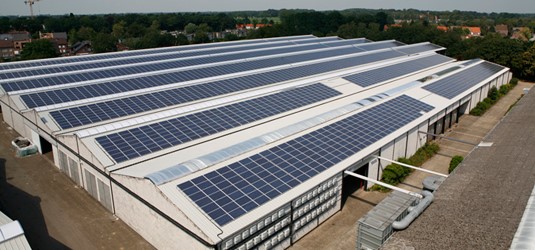Eco-Efficiency: Rooftop Solar Power

Eco-Efficiency Unveiled: Harnessing Power with Rooftop Solar Panels
Embarking on the journey towards eco-efficiency involves exploring sustainable energy sources, and rooftop solar panels emerge as a transformative solution. This article delves into the world of harnessing solar power from rooftops, unlocking the potential for clean, renewable energy.
The Rise of Rooftop Solar Panels: A Sustainable Revolution:
In recent years, rooftop solar panels have experienced a significant rise, marking a sustainable revolution in how we harness energy. The technology has become increasingly accessible to homeowners and businesses, allowing them to contribute to a cleaner, more sustainable future.
Solar Power at Your Doorstep: Decentralizing Energy Production:
Rooftop solar panels decentralize energy production, bringing power generation closer to where it’s consumed. This shift challenges the traditional centralized energy model, offering individuals and businesses the opportunity to be active participants in generating their electricity.
Installation and Integration: Merging Functionality with Design:
The installation of rooftop solar panels is a process that seamlessly merges functionality with design. Panels are strategically placed to capture maximum sunlight, often integrated into the existing architecture. This dual-purpose approach ensures solar panels not only generate power but also enhance the overall aesthetics of the building.
Harnessing the Power of the Sun: Photovoltaic Technology Demystified:
At the core of rooftop solar panels is photovoltaic (PV) technology, a method of harnessing the sun’s energy and converting it into electricity. Solar cells within the panels capture photons from sunlight, creating an electric current that can be utilized as a direct power source or stored for later use.
Energy Independence and Cost Savings: Empowering Homeowners:
One of the key advantages of rooftop solar panels is the potential for energy independence and cost savings. By generating their electricity, homeowners can reduce reliance on the grid, leading to lower electricity bills and insulating themselves from fluctuating energy prices.
Net Metering: The Dynamic Connection to the Grid:
Net metering is a crucial aspect of rooftop solar panel systems. It allows excess energy produced during sunny periods to be fed back into the grid, earning homeowners credits. In times of low solar production, such as nighttime, these credits can be used to draw electricity from the grid, ensuring a continuous and reliable power supply.
Environmental Impact: Mitigating Carbon Footprints:
The environmental impact of rooftop solar panels is profound. By harnessing clean, renewable energy, individuals contribute to the reduction of carbon emissions and the overall environmental footprint. Solar power helps combat climate change and fosters a more sustainable approach to energy consumption.
Incentives and Rebates: Encouraging Solar Adoption:
To encourage the adoption of rooftop solar panels, many governments and utilities offer incentives and rebates. These financial perks can significantly offset the initial investment, making solar power an attractive and financially viable option for a broader range of homeowners and businesses.
Technological Advances: Paving the Way for a Solar Future:
Ongoing technological advances in solar technology are paving the way for a solar-powered future. Innovations such as more efficient panels, energy storage solutions, and smart grid integration further enhance the appeal of rooftop solar. These advancements signal a promising trajectory for the widespread adoption of solar energy.
Explore the Solar Future: Rooftop Solar Panels Await You:
To explore the solar future and unlock the potential of rooftop solar panels, visit Rooftop Solar Panels. Discover the possibilities of harnessing clean, renewable energy, reducing your environmental impact, and contributing to a more sustainable and eco-friendly future. Rooftop solar panels await those ready to embrace a greener way of powering their homes and businesses.


